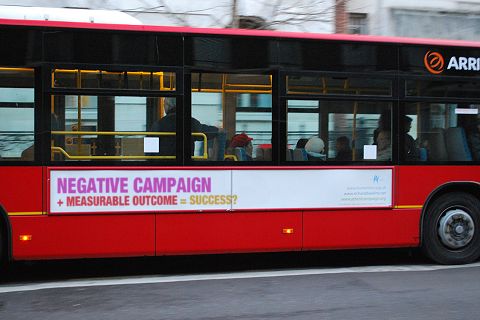There are currently 7771 members of the Facebook group “NoBonus4RBS“, started by Billy Bragg.
Let’s watch it fly and fly.
RATM wasn’t the first successful Facebook group-based campaign (see HSBC’s student overdraft charges, for instance). But I think it is a good model to emulate.
As I said here about song-based campaigns, negative campaigns can work (by that I mean campaigns that unite against something). News is usually “negative”, it’s very often about conflict.
For campaigners it’s also about establishing the cause in different places and among different influencers – not just a Facebook group, but a conversation point, a Twitter hashtag/phrase, news stories, blog posts… Online, everybody can be an influencer, to an extent.
I think the group does act as a hub for the rest of the campaign, a backchannel of sorts. Why? Facebook is dominant, it relies on existing friend/social connections, joining a group is relatively frictionless and each action in the group (joining, posting something) results in a news item for others to see.
I’ve joined the group.
Billy Bragg is threatening to withhold his tax on 31st January in protest. Something’s got to give…
UPDATE: Oh my, there is a lot of traditional media coverage of Bragg. I wonder if he’s peaked early and in doing so bypassed the groundswell that could have happened on social media. We’ll see…
